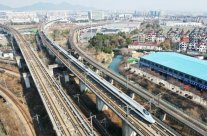Take measures to better protect the environment, not only the moral responsibility we must take, it can also bring strategic business advantages, enhance competitiveness and toughness, allow manufacturers to stand out and extend the life span of the enterprise.
One of the tricky challenges faced by Singapore manufacturers is how to improve sustainable development capabilities to maintain its competitiveness in the global market and ensure that business is advancing with the times.
The European Union and Singapore have issued relevant regulations, requiring enterprises to report to the "scope three emissions", including the source of all or controlled by non -enterprise, such as indirect emissions from the supply chain company.So there will be more companies next to cooperate with suppliers that meet sustainable development conditions.
The proportion of GDP in Singapore is 22%, and it provides about 12%of employment. Therefore, the sustainable development of the manufacturing industry is essential for Singapore's goal of achieving net zero emissions in 2050.
Singapore's emphasis on the growth and value -added of manufacturing, at first glance, it seems to be conflicty with the goal of achieving net zero emissions. After all, the growth of manufacturing may also lead to an increase in emissions. ThereforeObjectives, creating sustainable development of manufacturing are a key.
Faced with these pressures, manufacturers must adhere to the direction of sustainable development, otherwise there will be risk of being thrown by the market.In fact, the achievement of sustainable development has great benefits: Manufacturers can attract the customer base that can attract increasing attention to sustainable development by creating sustainable development products, and promote the rapid global growth. The process also helps enhance the brand awareness in the process.Essence
The trend ofmanufacturing to sustainable development has begun.According to a recent survey released by the Singapore Manufacturers Federation and other related institutions, 37%of companies in the manufacturing industry have introduced sustainable development measures, and 38%are planned to do this within one to three years.
Due to the many methods to achieve sustainable business development, manufacturers may not know which aspect should focus on how to take the first step or formulate the next step.The Singapore Science and Technology Research Bureau (A*Star, referred to as new scientific research), Jurong Group (JTC), and Tüv Süd (Green Compass "and other route planning tools developed by TüV Süd can help companies.
Use data and analysis insights to promote sustainable development
Green compass tools adopt four steps: understand the latest sustainable development trends and methodologies; evaluate the current level of sustainable development of the company; priority considerations that can have the greatest impact on finance and strategy; and formulate transformation roadmaps.Through this evaluation process, manufacturers can formulate effective plans that meet their own business conditions.
One of the examples is the A-PEX Singapore producing electronic connectors and parts.After completing the evaluation, the company realized that it is necessary to improve the supply chain network because some suppliers cannot meet the requirements of sustainable development.The company also reviewed environmental protection policies and provisions of suppliers, and conducted consultations with major suppliers to sustainable development goals.
The manufacturer can use rigorous data analysis methods after using the appropriate route planning tools to understand the current status of business and the next steps they must take, such as Life Cycle Assessment (LCA) and the cost of life cycle.(Lifecycle Costing, referred to as LCC) to evaluate the options in front of you.
LCA clarify the impact of the product from design to being eliminated, and the entire life cycle has on the environment.It not only calculates the resources required by the extraction, transportation, processing and assembly of raw materials, and the use of products, as well as the final disposal or recycling products, but also include all greenhouse gas emissions related to these activities, pollution and other effects caused by these activities.
LCA's data will help manufacturers implement solutions that can bring the greatest changes. This can be used by changing more environmentally friendly materials, replacing the manufacturing process, or even redesigning products to reduce the resources used, and at the same timeMake products easier to disassemble and recycle.
New scientific research has cooperated with a local manufacturer specializing in metal and ceramic injection molding to LCA for seven products.The results showed that the power used by making these products is the main source of carbon emissions.Analysis has found that manufacturers can greatly reduce the energy required for manufacturing products by adopting energy -saving technology or changing renewable energy sources.This helps manufacturers to achieve the goal of more environmentally friendly partners in the supply chain and show the reputation of corporate reputation to related stakeholders and customers.
On the other hand, LCC shows the sum of all expenditure costs in the life cycle.Manufacturers may find through such an analysis that a machine with a lower cost in the early stage will bring a large financial burden in the long run, because it has a low efficiency, and it may cause the manufacturer to violate environmental protection regulations on environmental protection regulationsAnd being punished.
Manufacturers can confirm which sustainable development measures can be confirmed by combining data analysis of LCA and LCC to make them maximum benefits.Not only that, this type of analysis also shows that sustainable development investment is a savvy strategic deployment, which can bring better operating efficiency, good long -term performance, and unique advantages that surpass market competitors.
Expand Sustainable Development Plan by yourself
In order to allow manufacturers to have the ability to analyze these analysis, the Singapore Manufacturing Technology Research Institute (A*Star's Simtech) under the new scientific research has developed a platform for the manufacturer's "life cycle assessment-LCA-LCC) platform.Including a 42 -hour course, the content covers LCA to manage and optimize the carbon footprint of the product.
TheLCA-LCC platform is an online tool, including Singapore's electricity and other resource use and activity emission data, so that local enterprises can accurately evaluate the impact on the environment, thereby carrying out sustainable development planning and comparing with other companies.Singapore companies can also make good use of the new "emission coefficient registration" announced by Fu Haiyan, the Minister of Sustainable Development and the Minister of Environment, to track and report carbon emissions.
Why is local data important?Taking the electricity consumption as an example, almost all the electricity in Singapore comes from natural gas. Although the emissions are lower than the coal power generation, it is still higher than the renewable energy power generation.Therefore, it is important to master local power emissions data, because relying on overseas data from coal or solar energy to rely on power sources will cause inaccurate carbon footprint calculations.
With a comprehensive, detailed and accurate understanding of the environmental impact, the manufacturer can better find out the places that need to be improved, set goals and formulate feasible strategies to achieve goals to meet the global transparency and transparency of climate -related informationThe demand for rapid development of sustainable development.
To better protect the environment, it is not only the moral responsibility we must take, it can also bring strategic business advantages, enhance competitiveness and toughness, allow manufacturers to stand out and extend the life expectancy of the enterprise.
If you can optimize the products and processes based on the use of data -based and considerate methods, manufacturers can also take responsibility for protecting the environment while ensuring economic benefits of business instruments.This not only supports Singapore to achieve the target of net zero emissions, but also allows enterprises to be at the forefront of industry innovation and maintain longevity.
The author is the subordinate of the Singapore Science and Technology Research Bureau
Singapore Manufacturing Technology Research Institute and Advanced Rebon and Technology Center
Research and Development Agency Division
Translation of Lin Huihui
The "Scientific Star language" column is cooperated with the United Morning Post and the Singapore Science and Technology Research Bureau to launch every month




